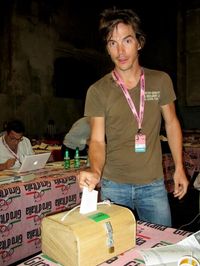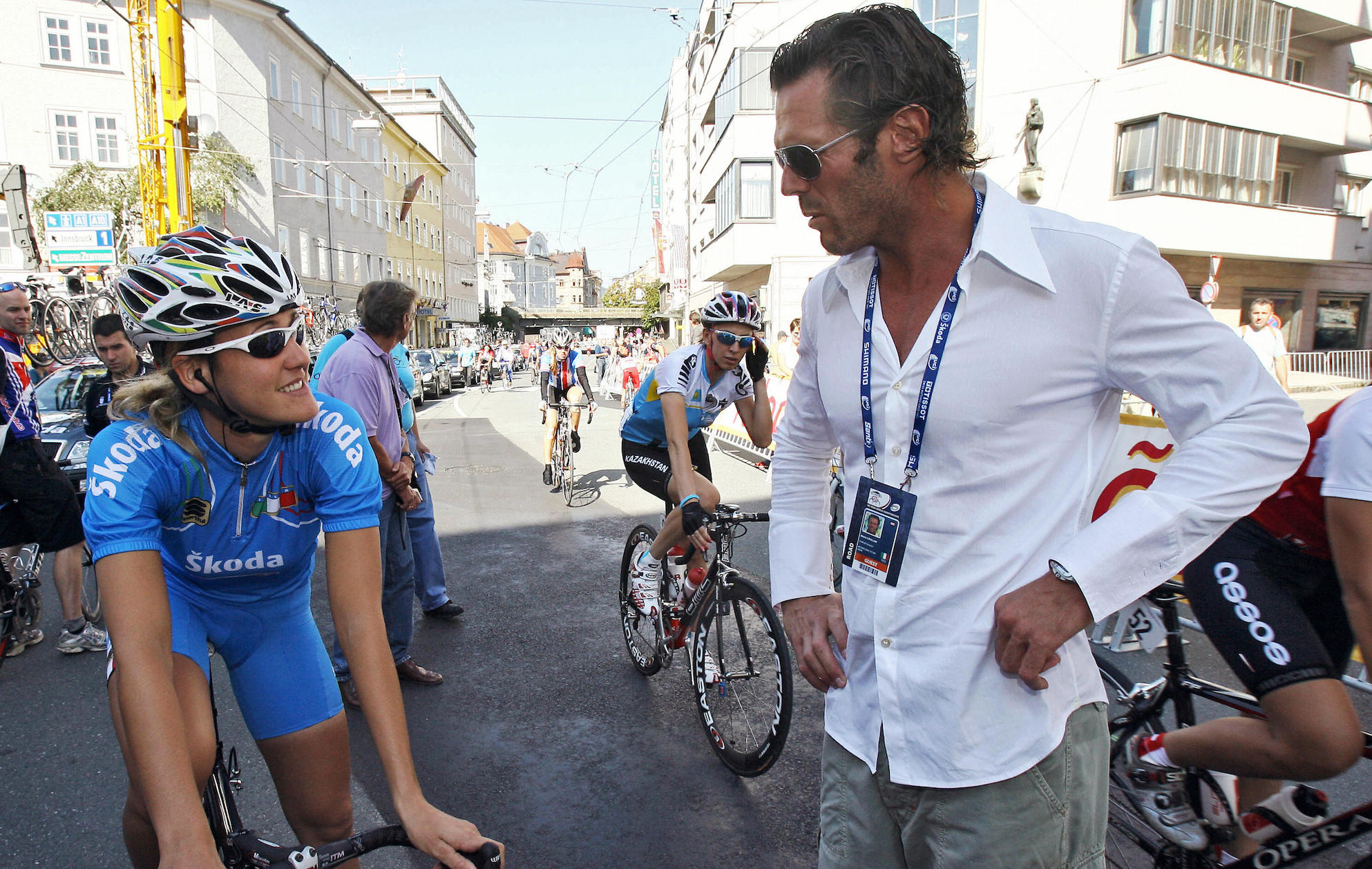Mario Cipollini recovering from five-hour heart surgery
The former Italian sprinter came close to dying, according to his doctor


Mario Cippolini with Vera Carrara prior to the Women's road race at the 2006 Worlds (Franck Fife/AFP via Getty Images)
Former Italian sprinter Mario Cipollini is recovering from a five-hour heart surgery undertaken to correct an artery anomaly, having risked death because of the condition.
The procedure was performed last month, with Cipollini going public with his health issues in order to help people better understand the heart problems cyclists can face.
>>> Chris Froome undergoes further operation as he continues his recovery
The coronary artery anomaly occurred at a spot where his heart's muscles fibres wrap around the artery, which was around two centimetres deep in his heart and compressed. After checks, a a ventricular tachycardia ablation was immediately performed at a hospital in Ancona, Italy.
"The problem is much more serious than we could think," Doctor Roberto Corsetti told La Gazzetta dello Sport.
"Yes, Mario risked dying. But he'll be back, we don't know if it will take two, three months or how much time."
The problem comes at a time when the 52-year-old will face a judge over accusations from his ex-wife that he pointed a gun at her, threatened and stalked her. Cipollini won a record 42 stages in the Giro during a career that spanned three decades from 1989 to 2008.
The latest race content, interviews, features, reviews and expert buying guides, direct to your inbox!
"It's a serious illness, no joking, and can lead to extreme consequences. The mother of a dear friend died from the after-effects of this disease. The doctors discovered that mine is due to a virus," Cipollini explained.
"It is strange, because as an athlete you think you are healthy, strong, perfect. Instead, it is not so. I realised that something was wrong because when I was climbing and pushing out 500 watts I felt like I'd hit a wall.
"I am lucky because I have a friend and a great professional like Dr Corsetti. He's almost maniacal in finding the problem and finding the solution. Even in my career I have exasperated my heart in a devastating way and now I find I have genetic problems that have limited me.
"I am 52 years old and still have some things to do in life. In a very difficult time I found myself in the hospital in the best possible situation. I have lived through intense moments that I could not have imagined."
Cipollini admitted it has been a hard time for him. Asked about his ex-wife's claims and the court case, he said: "No comment. It would not be right to speak about this in the newspaper before speaking with the judge."
The case will be heard on December 4, in his hometown of Lucca, in Tuscany.
In 2013, allegations linking Cipollini to codename 'Maria' in the Operación Puerto doping scandal surfaced. Documents claimed he used transfusions, EPO and hormones during the period when he achieved his biggest wins at the turn of the millenium, including Milan-San Remo and the World Championship title.
Cipollini has denied these allegations and has never been sanctioned in relation to them.
Gregor Brown is an experienced cycling journalist, based in Florence, Italy. He has covered races all over the world for over a decade - following the Giro, Tour de France, and every major race since 2006. His love of cycling began with freestyle and BMX, before the 1998 Tour de France led him to a deep appreciation of the road racing season.
